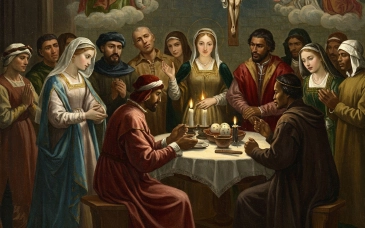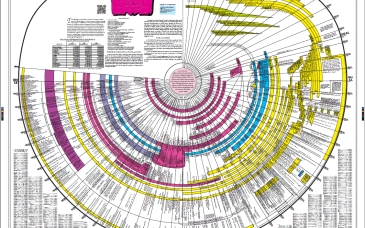The Old Testament was translated by Alexander R. Gordon (McGill University), Theopile J. Meek (University of Toronto), Leroy Waterman (University of Michigan), and J. M. Powis Smith (University of Chicago). The last person named was also the editor. The New Testament was translated by Edgar J. Goodspeed (University of Chicago).
There were basic reasons for the need of this translation of the Old Testament. The control of the Hebrew vocabulary and syntax available to the scholar at this time was vastly greater than that at the command of the translators of the Authorized Version or of its revisers. The science of textual criticism had made great progress in recent years, and no translation of the Old Testament could afford to ignore its results. There had developed a great interest in the stylistic qualities of Hebrew poetry. The English of King James's day was not wholly natural or clear to the average person at this time.
The official Massoretic text was used as a guide. When it was necessary to check elsewhere, a substitute along generally approved lines was used.
Hebrew poetry was presented in poetic lines. Archaic pronouns (except when used in addressing God), verb forms, and adjectives were made more modern. The Tetragammatron was rendered as LORD or GOD in small capital letters.
The New Testament was written in everyday Greek. It, thus, was translated into everyday English.
The translator used helps made available in recent years, including Greek papyri, grammatical works, lexicons, and lexical studies. He followed the Greek texts of Westcott and Hort, except in a very few verses. In one of these, he followed the suggestion of Rendel Harris that by an error of the eye the name of Enoch has dropped out of the text of 1 Peter 3: 19.
Sample Verses
Genesis 1: 1, 2
When God began to create the heavens and the earth, the earth was a desolate waste, with darkness covering the abyss and a temptuous wind raging over the surface of the waters.
John 1: 1 - 3
In the beginning the Word existed. The Word was with God, and the Word was divine.
It was he that was with God in the beginning. Everything came into existence through him, and apart from him nothing came to be.
Comparisons
The following comparative studies include this version:
- Bishops, Overseers, Presbyters, and Elders
- Entering His Rest
- From Eternity or From Ancient Times?
- Falsifying Scribes
- Fringe on the Borders of a Garment
- Gifts of the Spirit
- God So Loved the World
- Hebrew Synoptic Gospels
- Israelites and Baal-Peor
- Let No Man Judge You
- Lord Is My Shepherd: An Anthology
- Miracle at Cana
- Name of Our Heavenly Father
- Offering Sacrifices to the He-Goat
- Passover and the Days of Unleavened Bread
- Sabbaths and Sundown
- Seventy Weeks of Daniel 9
- Sides of the Court of the Tabernacle
- Some Variations in the Book of Acts
- Song of Solomon
- Story of the Adultress
- That Which Will Happen Before the End
- Those Who Work Iniquity
- Time of Peleg
- Tragedy at Beth-Shemesh
- Variations in the Pentateuch
- Words with Heathen Origins in the Scriptures
| Abbreviation: | SGAT |
| Released: | 1931 |
| Contents: | Old Testament, New Testament |
| Source Used: | University of Chicago Press (1931) |
| Location: | Tyndale House, Cambridge, United Kingdom |

